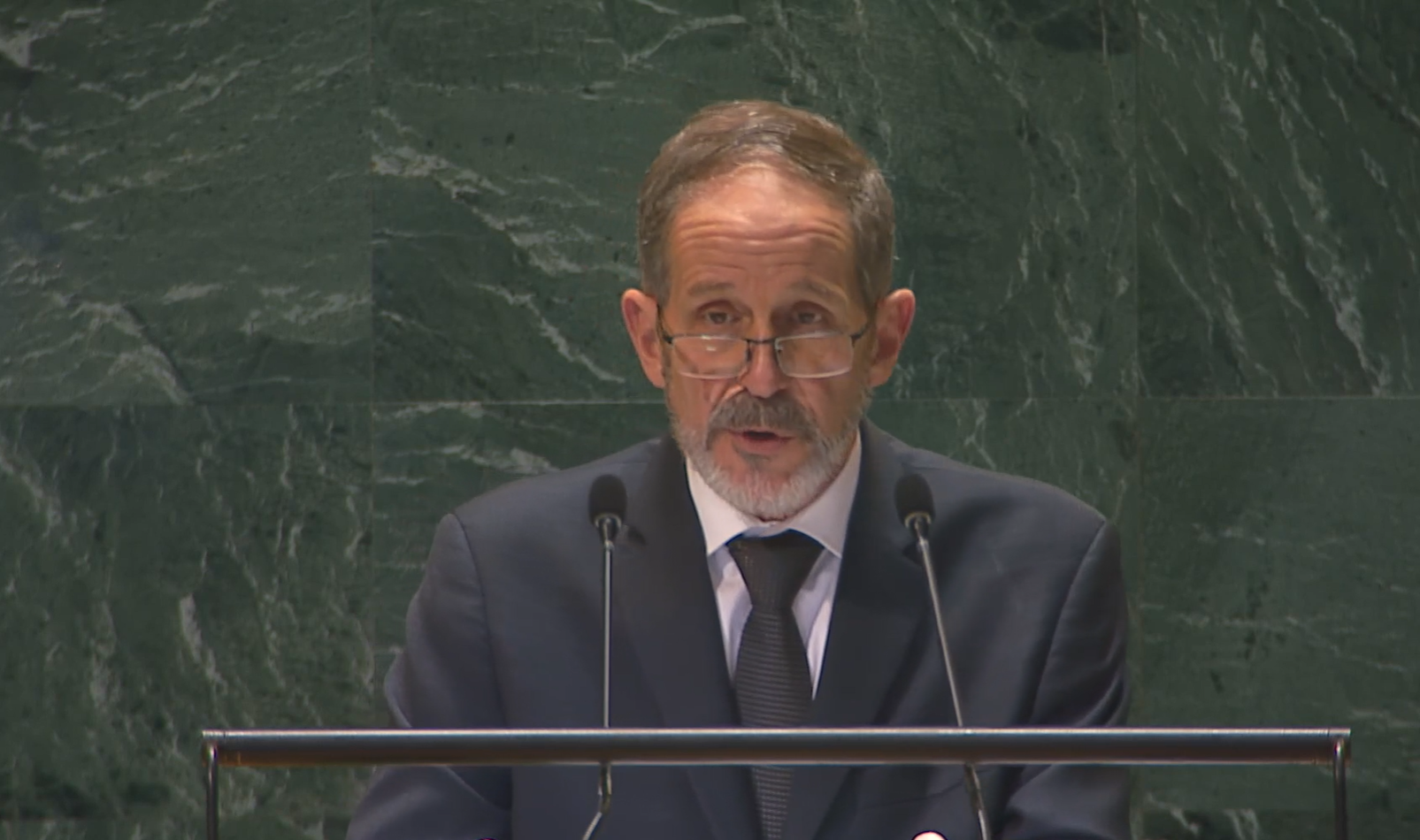
New York, 29 April 2025 – ASG Robert Petit delivered his first briefing to the UN General Assembly as Head of the IIIM. He presented the IIIM’s eleventh report to the GA and updated on progress since the historic events in Syria on December 8 last year.
“The end of more than 13 years of conflict and 50 years of authoritarian rule constitute an opportunity to build a future Syria on justice and the rule of law”.
ASG Petit expressed his appreciation for the constructive dialogue with the Syrian interim authorities during visits to Damascus. He reiterated the IIIM’s readiness to support Syrian-led transitional justice efforts and that the request to be granted authorization to operate in Syria was part of ongoing discussions with officials.
The UNGA session was notable for the presence of Syria’s interim Minister of Foreign Affairs, Mr. Asaad Al-Shaibani who welcomed the IIIM’s work as “a key component of accountability in Syria,” emphasizing that “without accountability, we are unable to prevent future conflict.” He also praised the General Assembly for establishing the IIIM.
“That mechanism has kept Syria and the Syrian people in the minds of the world’s peoples…You’ve condemned the Assad regime’s crimes and ensured that the world hasn’t turned its back on our people.”
ASG Petit highlighted several significant organizational developments and achievements including:
- The IIIM’s first visit to Syria on 21 December 2024, eight years to the day from its creation
- In 2024 alone, the IIIM conducted 154 collection activities, expanding its central repository to 280 terabytes of data
- To date the IIIM has received 466 requests for assistance from 16 jurisdictions related to 321 distinct investigations
- The IIIM has directly contributed to successful justice developments, including landmark convictions for crimes against humanity, war crimes, and genocide across multiple jurisdictions
- The IIIM publicly released for the first time a redacted version of a comprehensive report on the former regime’s detention system, documenting patterns of torture across more than 100 government facilities
ASG Petit noted that the IIIM’s regular budget had not increased since 2020 despite an increase in demand for its assistance. The Mechanism’s now faces a funding gap of $7.5 million for 2025, which he emphasized could grow as “once we better understand the situation in Syria and have clarity on the extent to which we can conduct operations there”. He called for sustainable funding to meet rising demands and the new opportunities now emerging.
The majority of Member States gave strong statements of support for the IIIM, and the progress made by the organization to fulfill its mandate, specifically commended:
- The mechanism’s evidence collection and preservation work
- Its role in supporting investigations and prosecutions across multiple jurisdictions
- Its victim/survivor-centered approach, commitment to inclusive justice and effective engagement with civil society
- The coordination with other UN bodies including the Commission of Inquiry and the Independent Institution on Missing Persons
Many also called increased funding to meet rising demands and the new opportunities now emerging. The IIIM is deeply grateful for the contributions and pledges from Austria, Czech Republic, the European Union, Finland, France, Germany, Hungary, Liechtenstein, Lithuania, Luxembourg, Malta, the Netherlands, Qatar, Spain, Switzerland, and the USA.
In his remarks ASG Petit recognized Syrian civil society for its indispensable role in documenting and sharing evidence of crimes and violations. “At the heart of each document, each testimony, each analysis,” he noted, “are people – many lost, many who have survived – each with a right to justice.”
Watch the full briefing here
Read the IIIM’s briefing here
